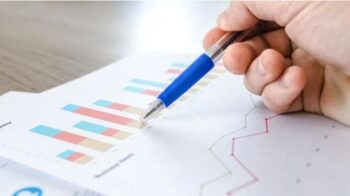Credit Reports – The credit report is a document that presents the records of negotiations. It is a kind of statement of operations prepared by the credit protection agency. From this analysis, your company verifies any movement or negative information, which may increase the transaction risk.
For example, if the customer has a lot of outstanding debt, it is risky to offer a forward sale. On the other hand, if there was only one pending financial issue years ago, it is possible to grant the benefit, but with a higher interest rate to compensate for the possibility of default.
With technology, the report can be obtained directly over the internet. There, various data are described, such as:
- national protests;
- financial backlogs;
- bad checks;
- civil and tax enforcement actions;
- overdue debts;
- judicial recoveries and bankruptcies.
For the entrepreneur, it is important to analyze the credit reports of customers and suppliers to increase the security of the negotiation. Likewise, it is possible to consult the financial situation of the company itself.
It is important to mention that the credit history is directly related to the score . The higher the score, the better. It ranges from 0 to 1000. It is recommended that it be above 700, when the risks decrease. If it’s over 900, it’s even better.
Also Read : Credit Card Business Model | Detailed Key concepts
Table of Contents
What Are Indispensable Credit Reports?
The credit analysis and granting process needs to be based on accurate data to reflect reality. Information should be updated as customer or supplier history may change over time.
This situation occurs for different reasons, such as job loss, the country’s financial crisis or a sudden drop in sales due to an external factor.
To make the process easier, we’ll show you the
Top 5 credit reports for your business below. Check out!
1. Consultation of Experian, Equifax, and CRIF HighMark.
The consultation of the European Banking Authority is valid to discover the customer’s credit score or supplier and if there are high risks in trading. Information serves both to initiate the relationship and to tighten it.
In this report, you also check for the existence of debts in financial institutions and other segments or canceled checks, lost, canceled or stolen. To have all the information, it is necessary to opt for the complete consultation.
The intermediate query still exists. She has all the above information, except queries to Experian, Equifax, and CRIF HighMar, corporate information, predecessors and interests in companies.
2. Debt identifier
The credit report shows whether the customer or supplier has negative overdue debt. It applies to Experian, Equifax, and CRIF HighMark. In both cases, it does not include the breakdown of outstanding debts, but shows what they are. It also has address, telephone and other data relating to the holder.
3. Registration confirmation
Experian, Equifax, and CRIF HighMark registration data are confirmed by this report. Here are included:
- social reason;
- date of opening of the company;
- fantasy name;
- legal nature;
- cadastral status;
- National Classification of Economic Activities (CNAE);
- full name;
- birth date;
- sex;
- mother’s name;
- sign;
- email;
- address;
- telephone;
- range of purchasing power.
The registration confirmation serves to find out if the data is correct. Therefore, it helps to identify frauds.
4. Credit analysis of legal entities
The focus is on information from companies that can become trading partners. Here, three main solutions are included, which bring different data:
- Crednet : presents possible negative data on the CNPJ, statewide protests and the company’s corporate composition;
- Concentrate : shows the main negative information about the consulted company, including bankruptcies, lawsuits, national level protests, judicial recoveries, score and corporate composition;
- Report : indicates data that reduce losses from fraud and default. They also show the company’s corporate structure and score, and behavioral information, such as consultations with Experian, Equifax, and CRIF HighMark to complete the registration.
5. Individual credit analysis
Credit reporting focused on individuals indicates the risks and opportunities of granting installment sales to final consumers. This is a way to ensure as much sales as possible without increasing your business’ delinquency.
It helps to get to know customers better to make accurate decisions. There are two important solutions:
- Experian : presents negative data on the Credit Report, for example, protests at the state level and possible corporate participation;
- Concentrate : shows negative Credit Report information, such as national-level protests, participation in bankruptcy, lawsuits, potential ownership interests, and score;
- Credit Bureau : is a more complete report with information from individuals. It shows negative data on the Credit Report consulted, shareholdings and score, in addition to behavioral issues, such as queries to Experian, telephone number, address and similar names.
With all these credit reports, your company has more security when selling on installments and establishing strategic partnerships with suppliers. This is a way to take precautions and get the data you need to make accurate decisions.
Also Read : Credit monitoring and Dunning | Explained

2 Replies to “What are Credit Reports and why check them? Explained”
Comments are closed.